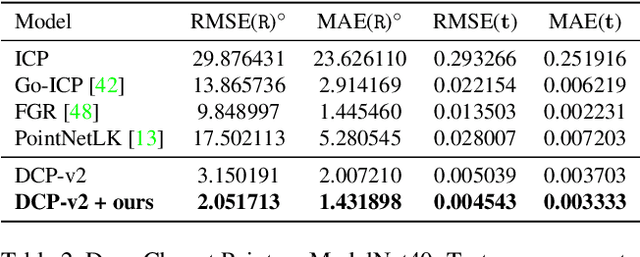(Just) A Spoonful of Refinements Helps the Registration Error Go Down
Paper and Code
Aug 06, 2021



We tackle data-driven 3D point cloud registration. Given point correspondences, the standard Kabsch algorithm provides an optimal rotation estimate. This allows to train registration models in an end-to-end manner by differentiating the SVD operation. However, given the initial rotation estimate supplied by Kabsch, we show we can improve point correspondence learning during model training by extending the original optimization problem. In particular, we linearize the governing constraints of the rotation matrix and solve the resulting linear system of equations. We then iteratively produce new solutions by updating the initial estimate. Our experiments show that, by plugging our differentiable layer to existing learning-based registration methods, we improve the correspondence matching quality. This yields up to a 7% decrease in rotation error for correspondence-based data-driven registration methods.
 Add to Chrome
Add to Chrome Add to Firefox
Add to Firefox Add to Edge
Add to Edge